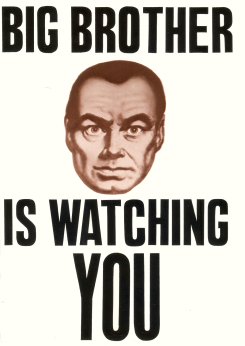Police use 'anti- terror' laws to stop-and-search 44,543 people. How many convictions? None.

Only one in every 400 stop and searches carried out under sweeping anti-terrorism laws leads to an arrest, and of those, none has ever led to the conviction of a single person for so-called 'terrorist' offences, triggering fresh pressure on the government and police over the controversial tactic.
One force, City of London, carried out 6,846 stops of pedestrians and vehicles without finding enough evidence to justify even a single arrest.
Official government figures covering 2005/6, the first since the July 7 2005 bombings on London, show a big increase in the use of the power, with Asian people bearing the brunt.
Stops under the Terrorism Act 2000 rely more on an officer's discretion than other powers to search, which require reasonable suspicion. The number of stops under terrorism laws in 2005/6 showed a 34% rise on the previous year to 44,543. Asians faced an increase of 84%, black people an increase of 51%, searches of "other" ethnic groups rose 36% and white people faced a 24% increase.
The biggest increases were in London, with the Metropolitan police carrying out more than half of all terrorism stop and searches and the City of London force 15%.
Experts believe anti-terrorism stop and searches have not led to a single person being caught who was later convicted of a terrorist offence.
In the 44,543 stops in England and Wales, there were 105 arrests. Out of every 400 people stopped 399 were let go straight away.
Ben Bowling, professor of criminal justice at King's College London, said: "These powers are being used indiscriminately with a minimal result. The consequence of that is a loss in public confidence and a drop of support among those stopped without reason for the police."
The figures showed that the racial divide in stop and search aimed at stopping non-terrorist crime also became starker. Black people were seven times more likely to be stopped and searched by police.
The number of stop and searches carried out under the Police and Criminal Evidence Act, which legally require reasonable suspicion, hit their highest level in seven years. In 2005/6 police carried out 878,153, a 3.4% increase on the previous year, with drugs being the main reason given by officers for searches.






1 Comments:
HapiBlogging to you my friend! Have a nice day!
Post a Comment
<< Home